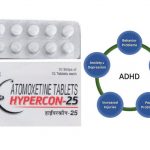Indomethacin: Uses, How It Works, Dosage, Side Effects, Interactions

What is Indomethacin?
Indomethacin is a medication used to relieve moderate to severe pain, tenderness, swelling, and stiffness caused by osteoarthritis (arthritis caused by a breakdown of the lining of the joints), rheumatoid arthritis (arthritis caused by swelling of the lining of the joints), and ankylosing spondylitis (arthritis that mainly affects the spine).
Indomethacin is also used to treat pain in the shoulder caused by bursitis (inflammation of a fluid-filled sac in the shoulder joint) and tendinitis (inflammation of the tissue that connects muscle to bone).
How it works
Indomethacin is in a class of medications called NSAIDs. It works by stopping the body’s production of a substance that causes pain, fever, and inflammation.
How should I take Indomethacin?
Indomethacin comes as a capsule, an extended-release (long-acting) capsule, and a suspension to take by mouth. Indomethacin capsules and liquid usually are taken two to four times a day. Extended-release capsules are usually taken one or two times a day.
Indomethacin capsules, extended-release capsules, and suspension should be taken with food, immediately after meals, or with antacids. Take indomethacin at around the same times every day.
Follow the directions on your prescription label carefully, and ask your doctor or pharmacist to explain any part you do not understand. Take indomethacin exactly as directed. Do not take more or less of it or take it more often than prescribed by your doctor.
Swallow the extended-release capsules whole; do not split, chew, or crush them.
Shake the suspension well before each use to mix the medication evenly.
Your doctor may change the dose of your medication during your treatment. In some cases, your doctor may start you on a low dose of indomethacin and gradually increase your dose, not more often than once a week. In other cases, your doctor may start you on an average dose of indomethacin and decrease your dose once your symptoms are controlled. Follow these directions carefully and ask your doctor or pharmacist if you have any questions.
Is Indomethacin safe during pregnancy?
No, if you are pregnant, you should not take indomethacin unless your doctor tells you to. Taking an NSAID during the last 20 weeks of pregnancy can cause serious heart or kidney problems in the unborn baby and possible complications with your pregnancy.
Can a breastfeeding woman take Indomethacin?
No, Indomethacin is known to pass into breast milk and is best avoided during breastfeeding. Indomethacin may temporarily affect fertility (ability to have children) in women. It may not be safe to breastfeed while using this medicine. Ask your doctor about any risks.
Indomethacin is not approved for use by anyone younger than 14 years old.
Can I drive if I have taken Indomethacin?
Indomethacin can cause side effects such as headaches, dizziness, drowsiness, visual disturbances, and hence caution is advised while driving. Avoid driving if you experience any such symptoms.
Can I drink alcohol while taking Indomethacin?
No, both Indomethacin and alcohol have the potential to cause stomach problems and bleeding. It is not recommended to take alcohol while on Indomethacin.
What are the side effects of Indomethacin?
Common side effects of Indomethacin include:
• a feeling of bowel fullness,
• bloating,
• blurred vision.
• constipation,
• diarrhea,
• dizziness,
• drowsiness,
• gas,
• headache,
• heartburn,
• itching, or
• nervousness,
• rectal irritation,
• skin rash,
• upset stomach,
• vomiting,
Tell your doctor if you experience unlikely but serious side effects of Indomethacin including swelling of the hands or feet (edema), sudden or unexplained weight gain, hearing changes (such as ringing in the ears), mental or mood changes, difficulty or painful swallowing, or unusual tiredness.
What medications can interact with Indomethacin?
The following medicines can interact with Indomethacin:
• Blood-thinning agents (Warfarin, Aspirin, etc.)
• Other painkillers (NSAIDs)
• Probenecid (used for gout)
• Methotrexate (used to treat certain cancers, skin diseases, and joint pains)
• Cyclosporine (immunosuppressant to handle rejection after organ transplant, skin disease, and joint pains due to an overactive immune system)
• Phenylpropanolamine (used for cough and cold)
• Medicines used to treat high blood pressure, water pills (Diuretics, Furosemide, etc.)
• Medicines used to treat heart failure and irregular rhythm (Digoxin, etc.)
• Lithium (used to treat mental disorders)
• Mifepristone (used to terminate pregnancy)
• Quinolone antibiotics (Norfloxacin, Ofloxacin, etc.)
• Medicines used to treat over-reactive immune system (Prednisolone, Betamethasone, Triamcinolone, etc.)
Interactions of Indomethacin with food items
Indomethacin has to be taken with food, milk, or stomach anti-acids to reduce the chances of stomach upset and bleeding.
How long does it take for Indomethacin to work?
It will usually take a week for you to experience any relief of symptoms. You may feel more comfortable after taking Indomethacin for two weeks and will start feeling much better as time progresses. It may take several weeks for the medicine to show full effect.
Is Indomethacin used to treat headaches?
In general, Indomethacin relieves pain. But due to the availability of safer medicines to treat headaches, Indomethacin is not used for regular headaches. Indomethacin is the first choice of medicine for the treatment of certain episodic, sudden, and long-standing headaches (chronic paroxysmal hemicranias) and headaches due to stress or physical exertion.





